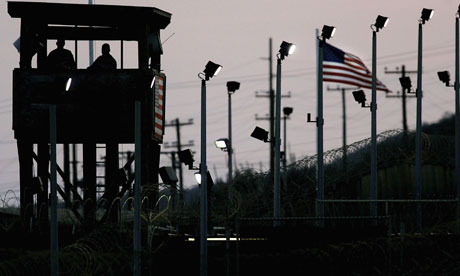 A top secret document revealing how MI6 and MI5 officers were allowed to extract information from prisoners being illegally tortured overseas has been seen by the Guardian.
A top secret document revealing how MI6 and MI5 officers were allowed to extract information from prisoners being illegally tortured overseas has been seen by the Guardian.
The interrogation policy – details of which are believed to be too sensitive to be publicly released at the government inquiry into the UK's role in torture and rendition – instructed senior intelligence officers to weigh the importance of the information being sought against the amount of pain they expected a prisoner to suffer. It was operated by the British government for almost a decade.
A copy of the secret policy showed senior intelligence officers and ministers feared the British public could be at greater risk of a terrorist attack if Islamists became aware of its existence.
One section states: "If the possibility exists that information will be or has been obtained through the mistreatment of detainees, the negative consequences may include any potential adverse effects on national security if the fact of the agency seeking or accepting information in those circumstances were to be publicly revealed.
"For instance, it is possible that in some circumstances such a revelation could result in further radicalisation, leading to an increase in the threat from terrorism."
The policy adds that such a disclosure "could result in damage to the reputation of the agencies", and that this could undermine their effectiveness.
The fact that the interrogation policy document and other similar papers may not be made public during the inquiry into British complicity in torture and rendition has led to human rights groups and lawyers refusing to give evidence or attend any meetings with the inquiry team because it does not have "credibility or transparency".
The decision by 10 groups – including Liberty, Reprieve and Amnesty International – follows the publication of the inquiry's protocols, which show the final decision on whether material uncovered by the inquiry, led by Sir Peter Gibson, can be made public will rest with the cabinet secretary.





 A federal judge ruled on Tuesday that a five-year-old Minnesota boy and his father cannot be...
A federal judge ruled on Tuesday that a five-year-old Minnesota boy and his father cannot be... Five-year-old Génesis Ester Gutiérrez Castellanos misses her cousins, classmates and kindergarten teachers in Austin, Texas. Despite...
Five-year-old Génesis Ester Gutiérrez Castellanos misses her cousins, classmates and kindergarten teachers in Austin, Texas. Despite...






























